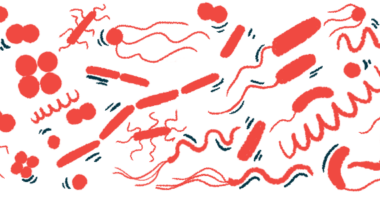Funding Awarded for New Antibiotic That Doesn’t Cause Hearing Loss

Researchers at Stanford University have been awarded £210,000 (about $265,000) to study preventing hearing loss caused by a class of antibiotics, called aminoglycosides, that are commonly used to treat lung infections in people with cystic fibrosis (CF).
The three-year research project will be jointly funded by the Royal National Institute for Deaf People (RNID) and Cystic Fibrosis Trust.
“We’re delighted to co-fund this important research with RNID to reduce the hearing loss side effects of taking aminoglycoside antibiotics,” Lucy Allen, PhD, the director of research at Cystic Fibrosis Trust, said in a press release.
“These medicines are a vital part of treating the serious lung infections that people with CF develop, but any improvements we can find will also benefit many others with hard to treat infections,” Allen said.
Accumulation of mucus in the lungs of people with CF can encourage bacteria to grow, leading to serious lung infections.
Aminoglycoside antibiotics are highly effective at fighting these infections, and are associated with low rates of antibiotic resistance, which happens when microbes develop an ability to overcome an antibiotics’ effects, rendering treatment less effective.
While often used when other antibiotics have proven unsuccessful, aminoglycosides can cause toxicity leading to several side effects, including kidney problems and hearing loss.
“Aminoglycosides enter and kill the sensory hair cells in the inner ear that are vital for hearing,” Alan Cheng, MD, the project’s lead researcher, said.
While the exact rates of hearing loss caused by aminoglycosides is unknown, researchers have estimated that as many as 50% of CF patients might be affected.
Mark Aisthorpe, a chef from the U.K. and a CF patient, said treatment with the aminoglycoside tobramycin for an infection when he was 16 led to hearing loss that substantially impacted his life for many years.
“Until I started losing my hearing I was always pretty good about taking my CF medicines, but developing hearing loss put me off taking them for nearly 10 years,” Aisthorpe said. “It affected my social life too – I used to love nights out and meeting new people, but I lost interest in that altogether as I couldn’t hear what people were saying.”
The research team will work to develop less toxic aminoglycosides to help prevent the kinds of problems Aisthorpe encountered.
“Our approach is to design and test versions of these medicines that aren’t able to get into hair cells, but retain the ability to kill bacteria,” Cheng said.
The researchers hope that with three years of funding, at least three new antibiotics will have been developed that show promise for clinical testing. And since aminoglycosides are used to treat many conditions, the research could extend beyond CF.
“As well as treating cystic fibrosis lung infections, this class of antibiotic is also commonly used to prevent infections in neonatal babies,” Ralph Holme, PhD, RNID’s director of research and insight, said.
“We’re excited about the potential impact this research could have on hundreds of people to prevent them losing their hearing as a result of aminoglycoside antibiotics,” Holme said.








